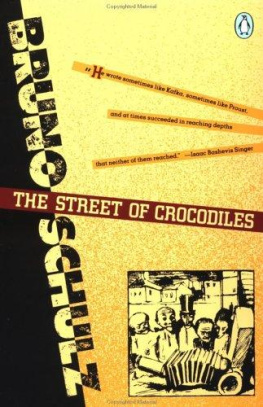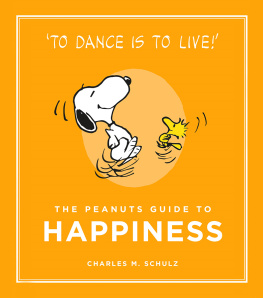A NIGHT IN JULY
DURING THE LONG HOLIDAY of my last year in school I became acquainted for the first time with summer nights. Our house, exposed all day long to the breezes and glares of the hot summer days that entered through the open windows, now contained a new lodger, my sister's small son, a tiny, pouting, whimpering creature. He made our home revert to primitive conditions, he reduced us to the nomadic and harem-like existence of a matriarchal encampment where bedding, diapers, and sheets were forever being washed and dried, where a marked neglect of feminine appearance was accompanied by a predilection for frequent Strippings of a would-be innocent character, an acid aura of infancy and of breasts swelling with milk.
After a very difficult confinement, my sister left to convalesce at a spa, my brother-in-law began to appear only at mealtimes, and my parents stayed in their shop until late at night. The household was ruled by the baby's wet-nurse, whose expansive femininity was further enhanced by her role as mother-provider. That majestic dignity, coupled with her large and weighty presence, impressed a seal of gynecocracy on the whole house. It was a gynecocracy based on the natural advantages of a replete and fully grown carnality shared cleverly between herself and two servant girls, whose activities allowed them to display a whole gamut of feminine self-absorption. The blossoming and ripening of the garden full of rustling leaves, silvery flashes of light, and shadowy meditations was balanced inside the house by an aroma of femininity and maternity that floated over the white linen and the budding flesh. At the hotly glaring hour of noon all the curtains in the wide-open windows rose in fright and all the diapers drying on lines fluttered in a row: through this white avenue of linens and muslins feathery seeds, pollens, and lost petals flowed in; the garden tides of light and shadow, the intermittent rustle and calm slowly entered the rooms as if this hour of Pan had lifted all walls and partitions and allowed an all-embracing unity to rule the whole world.
I spent the evenings of that summer in the town's only cinema, staying there until the end of the last performance.
From the darkness of the cinema hall, with its fleeting lights and shadows, one entered a quiet, bright lobby like the haven of an inn on a stormy night.
After the fantastic adventures of the film, one's beating heart could calm down in the bright waiting room, shut off from the impact of the great pathetic night; in that safe shelter, where time stood still, the light bulbs emitted waves of sterile light in a rhythm set by the dull rumbling of the projector, and kept by the shake of the cashier's box.
That lobby, plunged into the boredom of late hours like a railway waiting room after the departure of the last train, seemed at times to be the background for the final minutes of existence, something that would remain after all else had passed, after the tumult of life was exhausted. On a large colored poster, Asta Nielsen staggered forever with the black stigma of death on her forehead, her mouth open in a last scream, her eyes supremely beautiful and wide with superhuman effort.
The cashier had long since left for home. By now she was probably bustling by an unmade bed that was waiting in her small room like a boat to carry her off to the black lagoons of sleep, into the complicated world of dreams. The person sitting in the box office was only a wraith, an illusory phantom looking with tired, heavily made-up eyes at the emptiness of light, fluttering her lashes thoughtlessly to disperse the golden dust of drowsiness scattered by the electric bulbs. Occasionally she smiled palely to the sergeant of the fire brigade, who, himself empty of reality, stood leaning against the wall, forever immobile in his shining helmet, in the shallow splendor of his epaulettes, silver braids, and medals. The glass panes of the door leading into the late July night shook in time with the rhythm of the projector, but the reflection of the electric lamp in the glass refuted the night, contributing to the illusion of a shelter safe from the immense spreading darkness. Then at last the enchantment of the lobby was broken: the glass door opened and the red curtain swelled from the breath of night which overruled everything.
Imagine the sense of adventure felt by a slim and sickly high school boy when he opens the glass door of a safe haven and walks out all alone into the immensity of a July night. Will he forever wade through the black morasses and quagmires of the endless night, or will he come one morning to a safe harbor? How many years will his lonely wanderings last?
No one has ever charted the topography of a July night. It remains unrecorded in the geography of one's inner cosmos.
A night in July! What can be likened to it? How can one describe it? Shall I compare it to the core of an enormous black rose, covering us with the dreams of hundreds of velvety petals? The night winds blow open its fluffy center, and in its scented depth we can see the stars looking down on us.
Shall I compare it to the black firmament under our half-closed eyelids, full of scattered speckles, white poppy seeds, stars, rockets, and meteors? Or perhaps to a night train, long as the world, driving through an endless black tunnel; walking through a July night is like passing precariously from one coach to another, between sleeping passengers, along narrow drafty corridors, past stuffy compartments.
A night in July! The secret fluid of dusk, the living, watchful, and mobile matter of darkness, ceaselessly shaping something out of chaos and immediately rejecting every shape. Black timber out of which caves, vaults, nooks, and niches along the path of a sleepy wanderer are constructed. Like an insistent talker, the night accompanies a lonely pilgrim, shutting him within the circle of its apparitions, indefatigable in invention and in fantasies, evoking for him starry distances, white milky ways, the labyrinths of successive Coliseums and Forums. The night air, that black Proteus playfully forming velvety densities streaked with the scent of jasmine, cascades of ozone, sudden airless wastes rising like black globes into the infinite, monstrous grapes of darkness flowing with dark juice! I elbow my way along these tight passages, I lower my head to pass under arches and low vaults, and suddenly the ceiling breaks open with a starry sigh, a wide cupola slides away for a moment, and I am led again between narrow walls and passages. In these airless bays, in these nooks of darkness, scraps of conversation left by nightly wanderers hang in the air, fragments of inscriptions stick to posters, lost bars of laughter are heard, and skeins of whispers undispersed by the breeze of night unfold. Sometimes the night closes in around me like a small room without a door. I am overcome by drowsiness and cannot make out whether my legs are still carrying me forward or whether I am already at rest in that small chamber of the night. But then I feel again a velvety hot kiss left floating in space by some scented lips, some shutters open, I take a long step across a windowsill and continue to wander under the parabolas of falling stars.
From the labyrinth of night two wanderers emerge. They are weaving something together and pull from the darkness a long, hopeless plait of conversation. The umbrella of one of them knocks monotonously against the pavement (such umbrellas are carried as protection from the rain of stars and meteors), and large heads in globelike bowlers start rolling about. At other times I am stopped for a moment by the conspiratorial look of a black squinting eye, and a large bony hand with protruding joints limps through the night clutching the crutch of a stick, tightly grasping a handle made from a stag's horn (in such sticks long thin swords are sometimes hidden).
Next page











